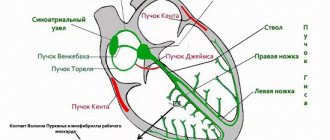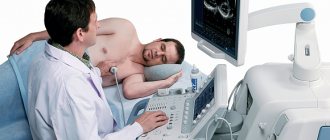Why undergo a medical examination
The purpose of the preliminary and periodic medical examination is to make a decision on the admission of the applicant/employee to a certain type of work.
Firstly, this is done to take care of the health of the potential employee. During a medical examination, contraindications to certain types of activities may be identified. In this case, the employer does not have the right to allow the person to work.
If, during a periodic medical examination, an employee is diagnosed with occupational diseases caused by working conditions, the company can offer an alternative vacancy that is suitable for the employee due to health reasons.
Secondly, a medical examination is necessary to protect others and colleagues of the applicant/employee. For example, in the case of identifying infectious diseases or pathologies that may lead to a situation that poses a threat to others.
Periodic medical examinations are also carried out to identify possible occupational diseases among employees and prescribe prevention or treatment.
What does the surgeon check?
If most people perceive the upcoming examination by a therapist calmly, then when going to see a surgeon, many are nervous. In fact, there is no need to worry, nothing terrible will happen in the doctor’s office. The examination is carried out in almost the same way as with a therapist, the difference is that surgeons look for other pathologies. The appointment begins with a conversation, asking about general health, complaints, symptoms, previous illnesses and chronic diseases. Then the surgeon will most likely ask you to undress from the waist up and take off your socks. The doctor will examine the skin to identify pathological formations on it, feel the abdomen, subcutaneous lymph nodes, check the legs for swelling and varicose veins, and determine joint mobility.
Fines for failure to conduct a medical examination in an organization
Is it generally necessary to undergo a preliminary/periodic medical examination? If an employee was allowed to work without undergoing a medical examination, or with identified contraindications for this type of activity, the employer must bear responsibility for this and pay a fine in the amount of:
- 15,000 - 25,000 rubles per official;
- 15,000 - 25,000 rubles for an individual entrepreneur;
- 110,000 - 130,000 rubles per legal entity.
If an employee is hired again without a medical examination, the penalties increase:
- 30,000 - 40,000 rub. or disqualification for 1-3 years for officials;
- 30,000 - 40,000 rubles for individual entrepreneurs or administrative suspension of activities for up to 3 months;
- 100,000 - 200,000 rubles or suspension of the organization’s activities for a period of up to 3 months.
If an employee has not passed a preliminary/periodic medical examination, then the employer has the right not to hire/dismiss such an employee.
What does a neurologist check?
Nothing special here either, the doctor performs a standard neurological examination. He will evaluate your posture, gait, facial symmetry, ask you to follow the hammer with your eyes, frown your eyebrows, bare your teeth, stick out your tongue. This will be followed by checking muscle tone and strength, and skin sensitivity using a special non-sharp needle. Then the doctor will use a hammer to check your reflexes, ask you to stand up, close your eyes, stretch out your arms, and touch the tip of your nose with your right and left index fingers.
As you can see, there is nothing scary or supernatural in medical examinations. Every doctor performs standard, basic procedures. The doctor’s goal is not to find you at any cost with a disease that could be a reason for dismissal. If you discover the first symptoms of incipient diseases, you will not be fired, but this will give you the opportunity to take timely measures to maintain your health and ability to work.
Who pays for preliminary and periodic medical examinations?
The medical examination is carried out and paid for by the employer, even if, based on the results of the preliminary medical examination, the applicant was not hired.
An organization can enter into an agreement with a medical institution and pay for medical examinations of employees immediately. If the employee underwent the examination on his own, the employer is obliged to compensate for the costs.
More information about concluding an agreement can be found by calling the phone number: +7 (3452) 500-105 (ext. 205 and 207)
or
by writing to the email:
[email protected]
On the eve of the study
Patients who are prescribed an ECG must begin preparing for the examination the day before diagnosis with the following activities:
- Complete peace of mind . On the eve of the ECG, it is necessary to completely protect yourself from stressful situations if possible. Experiences and high anxiety can distort the results of a cardiogram.
- Full sleep . Before the study, be sure to get enough sleep. In a tired body, the heart functions in an enhanced mode.
- Quitting alcohol . It is strictly forbidden to drink alcohol before an ECG. Alcohol causes the blood to thicken, causing the heart to work much harder.
- Proper nutrition . You should not overload the body with too heavy dinner and breakfast before the ECG. It is advisable to exclude fatty and heavy foods from the diet. Otherwise, the body will devote all its reserves to digesting food, and the heart will be forced to work “for wear and tear.”
- Refusal of physical activity . In order for the cardiogram to show reliable results, doctors advise not to exercise on the eve of the ECG, and to do without exercise or jogging in the morning.
- Elimination of thermal procedures . It is not recommended to visit saunas or steam baths before taking an ECG. Doctors advise against taking a bath. Any thermal procedures can increase blood circulation and heart activity.
- Taking medications . The day before the examination, it is necessary to completely avoid taking medications, except those that are prescribed on a regular basis. The doctor must know about the latter.
List of professions for preliminary and periodic medical examination
Which employees must undergo a medical examination:
- Persons under 18 years of age;
- Persons working in organizations with difficult, harmful or dangerous working conditions;
- Persons whose activities are related to driving a vehicle;
- Athletes;
- Judges;
- Persons working in the Far North or equivalent regions;
- Persons working on a rotational basis;
- Workers associated with catering, the food industry, trade in food products, as well as those working in organizations that provide water to the population;
- Employees of medical, treatment-and-prophylactic and children's institutions;
- Departmental security officers;
- Cosmetologists, hairdressers;
- Emergency service workers.
People often wonder whether office workers need to undergo a medical examination. Previously, when offices used computers with CRT monitors, it was necessary to visit an ophthalmologist and a neurologist. Today there is no such need.
What is blood tested for?
Physiologists and doctors call blood the internal environment of the body. It circulates in all organs and contains many substances, so its study helps to obtain important information about health. During medical examinations, only the most basic blood tests are performed:
- A general blood test is a routine test that every person should undergo at least once a year, regardless of age and place of work. Determine the level of red blood cells, leukocytes, platelets, hemoglobin, leukocyte formula, ESR, hematocrit (the ratio of blood volume to the volume of formed elements),
- Blood chemistry. Glucose (sugar) levels help check the condition of the pancreas and detect diabetes. Cholesterol levels are an important indicator of the health of the cardiovascular system. Its increase is associated with the risk of atherosclerosis, a pathology in which atherosclerotic plaques form on the walls of blood vessels. This threatens high blood pressure, and in the future, heart attack or stroke. It is recommended to regularly take a biochemical blood test for all people over 30–35 years of age. This helps to identify health problems in the early stages and take timely action.
The procedure for conducting preliminary and periodic medical examinations
The organization of preliminary and periodic medical examinations falls entirely on the shoulders of the employer. The process can be divided into the following stages:
Drawing up a “List of employees” for medical examination
Before organizing a medical examination at an enterprise, you need to make a list of employees for whom a medical examination is mandatory (we wrote about this above). According to paragraph 20 of Appendix No. 3 of Order No. 302n, the document must contain:
- a list of employees who must undergo a medical examination;
- harmful and dangerous production factors that are identified through a special labor assessment.
Conclude an agreement with a medical organization
To conduct a periodic medical examination in an organization, an employer can choose any medical institution (municipal or private). The main thing is to have a certificate and license to conduct medical and preventive activities. You can conduct medical examinations in different organizations every year.
To conclude an agreement, simply contact the selected organization and leave a request to organize a medical examination.
Issuing a referral for a medical examination
Next, you need to send workers for a medical examination. What should be indicated in the direction:
- Name of the organization;
- Basic details of the company (OKVED, form of ownership, legal address);
- Full name and date of birth of the employee;
- The name and address of the medical institution where the examination will be carried out;
- Type of examination (preliminary or periodic medical examination);
- The profession or position for which the employee is applying;
- A complete list of harmful production factors that have a negative impact on employee health.
Conducting a medical examination
The company provides the clinic with a ready-made list of employees subject to medical examination and pays for the services. Otherwise, the employee chooses the examination location independently.
The employee must come to the medical institution indicated in the referral on the day allocated for the medical examination. At the clinic/medical center, he is given a list of specialists and tests.
Which doctors should you see during a medical examination?
The list of doctors who need to undergo a preliminary/periodic medical examination usually depends on the type of activity, gender and age of the employee.
Typically, the following doctors are examined during a medical examination:
- Occupational therapist;
- Psychiatrist-narcologist, (psychiatrist);
- Ophthalmologist;
- Neuropathologist;
- Otorhinolaryngologist;
- Surgeon;
- Gynecologist (for women);
- Mammologist (for women over 40 years old).
For workers in the food industry, dairy and distribution points and some other related professions, it will also be necessary to undergo examination by specialists:
- Dentist;
- Dermatologist.
What tests are needed for a medical examination?
For the examination, it is also necessary to undergo a number of tests. Preliminary/periodic medical examination should include:
- General blood and urine tests;
- Fluorography;
- ECG.
For workers in the food industry, dairy and distribution points and some other related professions, additional tests will be prescribed, such as:
- stool tests for worm eggs and enterobiasis;
- smear for staphylococcus.
You may also need to undergo a psychiatric evaluation. It will be necessary for admission to the following types of activities:
- Teaching and social work;
- Work in law enforcement agencies;
- Working with transport;
- Work related to the trafficking of psychotropic substances, drugs and chemicals;
- Work in extreme conditions.
Receiving survey results.
The results of the preliminary/periodic medical examination are documented in the form of a medical report in accordance with Order No. 302n. In case of a positive medical report, a certificate is issued to the patient. Then he himself can provide it to the employer. If the conclusion is negative, in addition to issuing it to the employee, it is sent to the employer within three days.
The conclusion may be negative if diseases that are contraindicated for certain types of activities are identified. For example, for workers in the food industry these are infectious diseases, and for people working in transport - mental disorders and ophthalmological diseases.
Required documents
To undergo a preliminary/periodic medical examination you will need the following documents:
- passport or other identification document;
- referral from the employer;
Workers employed in certain areas (food industry, medical staff, teachers, etc.) will also need to obtain a medical record. It can be issued at the same clinic where the examination takes place.
Preparing for an ECG
On the day of the ECG diagnosis, you need to get a good night's sleep. It is not advisable to perform any physical exercise (exercise, jogging, etc.). If the ECG at the clinic is scheduled for early morning, then you need to avoid a heavy breakfast. During the day procedure, you should limit yourself to a light snack 2 hours before the start of the session.
It is important to avoid tea, coffee, energy and other drinks on the day of electrocardiography, as they stimulate the activity of the heart, as a result of which the results may be distorted. The use of medications that have a vasoconstrictor effect (including some eye drops, cold remedies, etc.) is excluded. Smoking is strictly prohibited 2 hours before the cardiac ECG.
You should not apply various care products (lotions, creams) to your body, as their components form a greasy film on the surface, which in turn negatively affects the contact of the electrodes with the skin.











